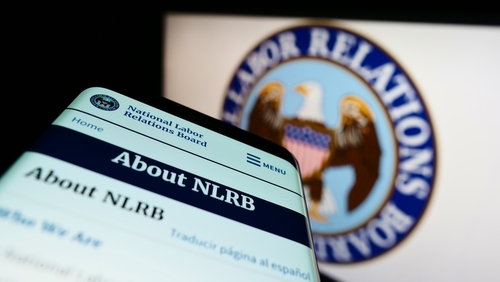National Labor Relations Board outlines penalties for cases involving 'repeated or serious misconduct'

Image from Shutterstock.
The U.S. National Labor Relations Board has outlined penalties for employers who repeatedly or egregiously violate federal labor law.
In its April 20 decision, the NLRB held that Nebraska meat processor Noah’s Ark Processors violated the National Labor Relations Act when it failed to bargain in good faith with its workers union.
According to Reuters, the board previously found that the company committed other violations and was held in contempt of a federal judge’s order that required it to bargain with a union.
The NLRB also said in its decision it had to have consistent standards for penalizing businesses for serious misconduct and would consider several remedies—including publishing notices of violations in media outlets, requiring notices to be posted in workplaces, and reimbursing unions’ bargaining expenses—in the future.
“The act gives the board broad discretion to exercise its remedial authority, and it can and should tailor the remedies to the violations, including to their nature, severity and extent,” said Lauren McFerran, chairman of the NLRB, in an April 20 statement. “Our aim is to ensure that in every case involving repeated or serious misconduct, the board will consistently consider and implement a full range of potential remedies, so that our actions will make victims of unfair labor practices whole while ensuring that employees not only understand their rights under the act but also feel free to exercise them going forward.”
Reuters reports that Marvin Kaplan, the NLRB’s only Republican, agreed that Noah’s Ark Processors violated the law but said in a partial dissent his colleagues should not have gone beyond the facts of the case to outline penalties that could be ordered in other cases in the future.
“My colleagues clearly believe that it is appropriate to provide litigation advice to the general counsel,” wrote Kaplan, who Reuters said was referring to the official who investigates and prosecutes unfair labor practice cases for the NLRB. “I do not.”
Write a letter to the editor, share a story tip or update, or report an error.



